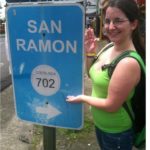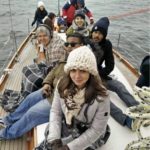Zach Scott is A Freeman-ASIA Awardee for the Fall of 2021. He plans to study environmental sustainability in Thailand and bring his learnings back to Berea. Congratulations, Zach!
An Interview with Thomas J. Watson Fellowship Winner Sunaina Sherchan
1988 – 2018: 30 Years of Berea College Watson Fellows
an interview with
Sunaina Sherchan
Each year, graduating seniors from 40 institutions around the nation are eligible to apply for the Thomas J. Watson fellowship. Its purpose is to grant those seniors the means to complete an independent project outside of the United States.
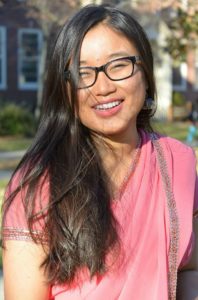
Since its induction as a partner institution in 1988, Berea College has had 37 Watson recipients. This year’s winner, Sunaina Sherchan, Berea College Class of 2018, will be learning about folktale traditions and has plans to visit Japan, New Zealand, and Finland. We asked her to share experience with us.
What encouraged you to apply for the Watson?
I’m originally from Nepal, and scholarships are unheard of there. When I was applying to Berea College, I thought the opportunity was unreal, and I spent a lot of time checking to see if I had been accepted. This was practically a free education in the United States. My freshman year I became interested after I learned that there had been a recipient, Tuvshinzaya Amarzaya (’15), on campus. I was encouraged to start thinking about my project proposal from the beginning of my time here.
What was your passion or inspiration for your proposal?
I went back home for the first time in three years to go to the Bara Barsa festival that is held in the Himalayas once every twelve years. It was there that I was fully immersed in the culture of my ethnic Thakali community for the first time. I listened as people engaged in storytelling and shared traditional folktales and fairytales. These tales helped shape my identity, and I wondered how similar traditions around the world affected members of their communities.
What resources did you use as a source for inspiration as you wrote your personal statement?
The Watson website has a list of recipients and their project proposals and you can find many resources online from other colleges’ recipients. There is also a binder provided in the office at the Center for International Education that has several examples. These examples helped me understand many different ways that I could present my ideas, but it’s important to stay true to how you write. I used them as sources for inspiration. I think it is important to write a statement first and then use these resources as guides for editing.
What was the process like?
When the results revealed the four nominees on campus, we all went through a series of several mock interviews. As a group we spent time together discussing our passions and supporting each other as we wrote and revised our proposals. I spoke to others who were familiar with the process. I don’t think that I would have won without the support that I had through it all. One of the things I least expected was how excited some people were for me when I had received the fellowship.
What do you think it takes in order to be a successful Watson winner?
They want to help you succeed in exploring a topic that you’re passionate about and you want to be able to convey this in a genuine and creative manner. You should know why you’re so invested in this project and be able to clearly explain what it means to you. If you have multiple ideas, it’s important that you stick to the one that can most accurately reflects your dedication and engagement in your countries of interests and the theme of your project.
What advice do you have for other students?
There are a lot of people who start applying for the Watson, but many end up not completing their applications. My advice is to at least try. You are lucky enough to be from a limited group of applicants from forty* institutions. Even if you don’t win, you get valuable learning experience to use toward future opportunities.
Another tip I have is to not be too discouraged about discussing your ideas with others. At first I was worried about sharing my stories with others, but doing so helped me see how those who listened perceived them. Hearing their responses helped me see ways I could make improvements.
An important thing to keep in mind is that the project should mean something personal to you and be centered on a passion that you’re deeply invested in. You want to be able to express the details of your plans in a way that reflects the bigger picture and how connected and invested you are in your project.
Interested in applying? We’re now accepting applications for students graduating in December 2018 and May 2018.
Gilman Scholarship Deadlines
Spring deadlines for the Gilman Scholarship are fast approaching. With so much to do on campus, it can be easy to forget what all you have to do. However, if you intend to apply for the Gilman, please keep yourself aware of what is due, and when. Good luck!
Mid-August 2017 Online application opens for Spring 2018 study abroad programs and
internships.
October 3, 2017 Student Deadline for submission of online application, including
transcript(s). Must submit application by 11:59pm CDT.
October 10, 2017 Advisor Deadline for submission of online Study Abroad Advisor and
Financial Aid Advisor section.
October/November 2017 Complete Applications are processed and distributed to selection
panels for review.
Late-November 2017 All Applicants are notified of the status of their application via
email. Study Abroad and Financial Aid Advisors will be notified of
scholarship recipients via email. A list of the recipients will be
available on the Gilman website.
December 2017 Scholarship recipients must accept/decline their award and submit
required documentation.
Below are a few Berea College students who have studied abroad. You can become one of them!
- Jennifer Blume pointing at San Ramon sign
Rhodes Scholarships
The Rhodes Scholarship is a postgraduate award supporting exceptional students from around the world to study at the University of Oxford (only the University of Oxford).
- The Scholarship aims to nurture public-spirited leaders for the world’s future
- Scholars may pursue any full-time postgraduate degree (subject to limited restrictions) offered by the University of Oxford, for a duration of 2-3 years
- Whilst at Oxford Scholars enjoy a comprehensive Rhodes Character, Service & Leadership programme, inclusive of retreats, workshops, conferences, as well as many discussion and social events at Rhodes House, Oxford
- The Scholarship includes full tuition, a maintenance stipend, and flights to and from Oxford at the beginning and end of tenure
How to apply:
Candidates wishing to apply for the Rhodes Scholarship must first be endorsed by the college. Please send a pdf of your application to Ann Butwell by September 15th. In addition to this, you will also need to:
- proof of citizenship or lawful permanent resident status
- a certified transcript (or transcripts)
- a list of principal activities
- a clear, printable head and shoulders photograph (preferably high resolution)
- the endorsement of the applicant’s college or university
- five, but not more than eight, letters of recommendation. At least four of these letters must be persons from whom the applicant has received undergraduate or graduate instruction, and at least one letter (the fifth) must speak to the applicant’s character
- a personal statement not exceeding 1000 words which the applicant must attest as wholly truthful and his or her own work. The statement should describe the applicant’s academic and other interests, and describe the specific areas of proposed study and the reasons for wishing to study at Oxford. The statement should be written in as simple and direct a manner as possible and set in a typeface no smaller than 10 points. Selection committees will place special emphasis on the personal statement and it may be forwarded to Oxford colleges to which Rhodes Scholars-elect apply for admission. Committees may, in their discretion, reject any personal statement which fails to meet these requirements.
In addition to this, the applicant must be prepared to attend a reception and personal interview, and remain for possible reinterviews and the election announcement, in the city serving the respective district region, on the Friday and Saturday preceding the Thanksgiving holiday.
For more information, please visit the Rhodes website at http://www.rhodesscholar.org/
Berea College Student Wins Prestigious Thomas J. Watson Fellowship 2017-2018
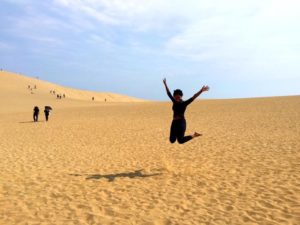
BEREA, Kentucky—The Center for International Education is proud to announce that Berea College Nominee Zakiyya Ashe won the national competition for the 2017-2018 Thomas J. Watson Fellowship prize of $30,000.
Zakiyya will engage in purposeful exploration—traveling the world for 365 days—after she graduates in May.
Her project, “Hidden Minorities: Connection through Animation and Graphic Novels,” will take her through Australia, Singapore, South Africa, South Korea, and France.
During this year, Zakiyya will travel to five countries essential in adding racial, gender, and LGBTQIA+ diversity to the animation pipeline. She asks, “What are the mindsets of minorities pioneering this new animation art form?” The countries she wishes to visit encourage audiences to establish networks using animation and graphic novels as a connection medium. To understand how the marginalized identify with characters, stories, and others like them, Zakiyya will collaborate with artists to explore how they have strengthened their voices through the animation industry.
Zakiyya has graciously shared her sentiments at this moment by stating, “This is an exciting opportunity! I’m happy and grateful to be able to receive this chance to find people around the world that feel just as much joy about minorities in animation as I do.”
Berea College is the only school in the Commonwealth of Kentucky from which The Watson Fellowship accepts candidates. This year, from Watson’s 40 participating institutions, 149 finalists were nominated to compete on the national level from which 40 fellows were selected. The Watson pool continues to be extremely competitive. Berea College is grateful to be able to put forward candidates for this esteemed prize.
Continuing its tradition of expanding the vision and developing the potential of remarkable students, today the Watson Foundation announced its 49th class of Thomas J. Watson Fellows. The Watson provides a year of unparalleled international exploration for select graduating college seniors in any field.
This year’s class comes from 6 countries and 21 states. They’ll travel to 67 countries exploring topics ranging from pediatric cancer treatment to citizen journalism; from animation to autonomous vehicles; from immigration to island communities, from megacities to wildfire management. “As we approach a half-century of making big bets on talented students, we are thrilled to announce this year’s class,” said Chris Kasabach, Executive Director of the Watson Foundation. “We work with a terrific group of partner institutions and these fellows shows the enormous depth, width, and creativity of our next generation of leaders.”
Watson awardees come from private liberal arts colleges and universities across the United States. From the program’s 40 partner institutions, 149 finalists were nominated to compete on the national level from which 40 Fellows were selected. Fellows will receive $30,000 for twelve-months of travel and college loan assistance as required.
About the Watson Foundation
In 1961, Jeannette K. Watson created the Thomas J. Watson Foundation in the name of her husband, Thomas J. Watson Sr, best known for building IBM. Through one-of-a-kind, life-changing programs, the Foundation provides fellows with cultural, professional and personal opportunities that challenge them to expand their vision, test and develop their potential, and build the confidence and perspective to do so for others. In 2015, the Foundation organized as a public-facing foundation, unifying its programs under the Watson Foundation.
About the Thomas J. Watson Fellowship
The Thomas J. Watson Fellowship offers graduating college seniors of “unusual promise” the opportunity to engage in one year of independent exploration and travel outside the United States. A Watson Year provides fellows with an opportunity to enhance the capacity for resourcefulness, imagination, openness, and leadership, and to foster humane and effective participation in the world community—in short, to develop future leaders who are self-reflective, well-informed, mindful citizens of the world. Over 2,800 Watsons have been named since the fellowship’s start in 1968. Watson Fellows have gone on to become international influencers in their fields including CEOs of major corporations, college presidents, Emmy, Grammy and Oscar Award winners, Pulitzer Prize awardees, artists, diplomats, doctors, faculty, journalists, lawyers, politicians, researchers and inspiring leaders around the world.
Here are images of Zakiyya’s artwork:
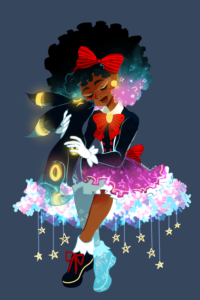
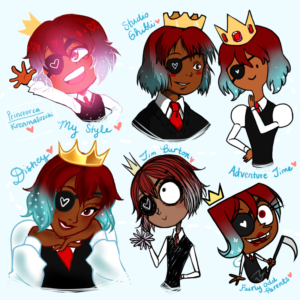
To learn more about applying as a Berea student or recommending a student, visit: https://legacy.berea.edu/cie/thomas-j-watson-fellowship/
To read Zakiyya’s project summary and the other 39 amazing projects, see: http://watson.foundation/fellowships/tj/fellows
#BereaAbroad #WatsonWednesday #BereaCollege
6 Berea College Students Awarded Prestigious Gilman Scholarship
Andrea Dowlen ’18, Kelley Farley ’17, Amber Follin ’17, Nicholas Fouch ’18, Amber Mosley ’18, and Emily Smith ’18 are students at Berea College and a few of over 850 American undergraduate students from 359 colleges and universities across the U.S. selected to receive the prestigious Benjamin A. Gilman International Scholarship, sponsored by the U.S. Department of State’s Bureau of Educational and Cultural Affairs to study or intern abroad during the spring 2017 term. The students will study abroad for an entire term in countries such as Germany, Ireland, Peru, Nepal, Cyprus, and Australia.
Gilman scholars receive up to $5,000 to apply towards their study abroad or internship program costs. The program offers grants for U.S. citizen undergraduate students of limited financial means to pursue academic studies or credit-bearing, career-oriented internships abroad. Such international exchange is intended to better prepare U.S. students to thrive in the global economy and interdependent world. Students receiving a Federal Pell Grant from two- and four-year institutions who will be studying abroad or participating in a career-oriented international internship for academic credit are eligible to apply. Scholarship recipients have the opportunity to gain a better understanding of other cultures, countries, languages, and economies — making them better prepared to assume leadership roles within government and the private sector.
Congressman Gilman, who retired in 2002 after serving in the House of Representatives for 30 years and chairing the House Foreign Relations Committee, commented, “Study abroad is a special experience for every student who participates. Living and learning in a vastly different environment of another nation not only exposes our students to alternate views, but also adds an enriching social and cultural experience. It also provides our students with the opportunity to return home with a deeper understanding of their place in the world, encouraging them to be a contributor, rather than a spectator in the international community.”
The program is administered by the Institute of International Education (IIE). The full list of students who have been selected to receive Gilman Scholarships, including students’ home state, university and host country, is available on their website: www.iie.org/gilman. According to Allan Goodman, President and CEO of IIE, “International education is one of the best tools for developing mutual understanding and building connections between people from different countries. It is critical to the success of American diplomacy and business, and the lasting ties that Americans make during their international studies are important to our country in times of conflict as well as times of peace.”
If you are curious about the Gilman and its wonderful opportunities, then follow this link and find out more information. Not only will this award help in covering costs, but can also help you connect with prestigious Alums and open many gateways if you plan on pursuing an international career.
Two Berea College Students Named Fulbright Semi-Finalists
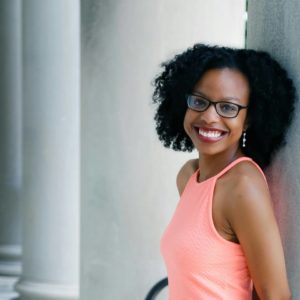
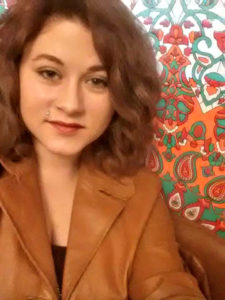
Berea, KY- Cayla Jones ’17 and Logan Lee Smith ‘17 are both semi-finalists for the post-graduate Fulbright Scholarship. These two graduating seniors will now compete at the international level. The Fulbright Program is the international educational exchange program sponsored by the U.S. State Department. It is designed to increase mutual understanding between the people of the United States and the people of other countries through cultural engagement.
Cayla Jones applied to be an English teaching assistant in Germany. She intends on teaching German students messages of tolerance, multiplicity of thought, and the hidden secrets of communication alongside American culture through American English studies. Due to the fact that her family’s history has been silenced, she plans on educating students on effective ways to retell their families’ history.
Logan Lee Smith intends on researching human trafficking in Iceland. Due to her passion and the fact that Iceland’s 3-year Anti-Human-Trafficking campaign has been extremely successful, she would like to study the strategies that Iceland has used to combat human trafficking and apply them to the United States.
The semi-finalists will find out later in the spring if they are finalists.
Since its establishment in 1946 under legislation introduced by the late Senator J. William Fulbright, of Arkansas, the Fulbright Program has provided opportunities for more than 300,000 people from the United States and from countries around the world to observe each others’ political, economic, educational and cultural institutions, to exchange ideas, and to embark on joint ventures of importance to the general welfare of the world’s inhabitants. The program operates in more than 155 countries worldwide.
You do not need to be enrolled currently at Berea College to apply; both graduating seniors and students who have already graduated can apply at the following link: https://legacy.berea.edu/cie/fulbright-us-student-program/. The Berea deadline for the application is September 30th every year. #BereaAbroad #Fulbright
An Interview with Thomas J. Watson Fellowship Winner Moondil Jahan
An Introduction
We humans tend to judge by appearances before getting to know someone. I had heard about Moondil Jahan all summer while working for the Center for International Education. She was our latest Watson Fellowship winner, and she was going to be leaving the United States soon. By the time of our interview I had formed a hazy image in my head of what she must be like from our press releases on the Watson and the performances I’d had the pleasure of watching… both her dancing troupe and the Afro-Latin drumming ensemble. She seemed so big then – drawing the audience’s attention her direction with her powerful stage presence – the very picture of confidence. You can imagine my surprise when she walked in for our interview. Clashing with my first perception: there stood a slight girl.
She greeted me with one of the brightest smiles I have ever seen in my life.
It was at that moment that I really started to understand that Watson Fellowship winners surprise you in unexpected ways. How many students had I met at Berea College that did the exact same thing?
Pre-departure – What does it feel like? Connections?
Upon being asked whether or not she was scared or worried before her departure, Moondil gave a resolute no. If anything, she said she was excited. The confidence I had seen in many of her performances appeared again. Moon explained that she was sincerely thankful for her African-Latin Percussion Ensemble instructor – Tripp Bratton. He was responsible for helping her create contacts in the various countries she wanted to visit for her Watson. With his guidance, she was able to establish relationships with Sayon Camara in Guinea, Gideon Alorwoyie in Ghana, a past Berea graduate by the name of Aminata Cairo in Amsterdam, and other drummers around the world. These people were able to help her with topics on drumming, dancing, or both. She had spent a year or more talking with these people, and was ready to meet them in person.
Moon stressed the importance of building connections. These connections helped her Watson project come together. An allegory she used when describing the process was like using strings. A person writing a Watson should be able to connect everything together, and as she talked I imagined the Watson proposal as a big tapestry. Consider each element of the Watson as a string – the countries, the topics, the places, the people, and the things you chose to do and study. She found how those strings related to one another, and soon her proposal had coalesced into a beautiful hand-crafted piece of art.
It was through her process of building up contacts and connections that she stumbled upon an astounding opportunity. Moondil became familiar with the drumming of Guinean drummer Famoudou Konaté while educating herself about African rhythmaculture. She had read many of his interviews and really looked up to him. She mentioned his honorary professorship (in Didactic of African Musical Practice) from the University of Berlin Arts with a grin. She talked about how he toured Europe for decades.
One day Moondil was talking to her contact in Guinea, Sayon Camara. As they were talking, he mentioned that he had learned drumming from Famoudou Konaté. Even more astoundingly, he told Moondil that she could meet him! When telling us this, she was practically vibrating in her seat from excitement. Her process of building contacts and meeting people had opened a world of opportunities to her.
Writing: Poetry vs. Prose, Proposals, and More Connections
Watson Fellowship hopefuls, in the midst of panicking and editing their umpteenth draft, typically want advice on the process of writing a Watson proposal. Moondil had some very good tips and suggestions for them. When writing her Watson proposal she worked very closely with a professor in the Spanish Department – Dr. Fred de Rosset. She suggested to find someone who “knows you well, who is a good person, and who knows how to listen.”
Admittedly, Moon went through several hundred drafts while writing her proposal. She explained how English was not her first language (she is from Bangladesh), and how Dr. de Rosset had her “tell stories” about why she made specific word choices in her essay. He then was able to help her refine the wording of her proposal. They met many times over the span of several months. She said she benefited immensely from the support of her professor.
Not only that, Moondil took advantage of other opportunities across campus. She was striving to make her Watson coherent – once again she used “strings” to describe her process – and wanted to leave no room for messiness in her writing. She aptly said, “You cannot take a word limit negatively. There is a reason why poems are more beautiful than prose.”
Her point was that life is like a novel, and your job is to shorten your story into something like poetry, so that it might perfectly fit your Watson proposal requirements. Moondil emphasized that the Watson Fellowship is an investment in a person, and everyone has something unique to bring to the table, “If you are passionate about something, there is no way you can be ordinary.”
Moondil decided to take advantage of other opportunities on campus too. She went to the Office of Internships and Career Development for a mock interview with Amanda Tudor. Those applying for the Watson Fellowship must go through two sets of interviews: one to pick four students to be nominated by from Berea College for the fellowship, and another from a representative from the Thomas J. Watson committee. This was another way to refine the skills she needed to win. Outside of the ICD, she also thoroughly enjoyed a mock interview with Dr. Carol de Rosset.
The advice she left Watson hopefuls is this: if you have a passion, if you truly love it, do not compromise. She explained how that beginning of writing process that she was unable to choose between dancing and drumming for proposal before realizing – why not both? You need to know clearly what you want to do. The core of this truth seemed to be this – your own passion, and the uniqueness of your experience, is what makes your Watson unique and something worth investing in.
The Road Ahead
The journey of a Watson Fellowship winner is both full of happiness and hardships. I asked Moondil what she thought would be the most difficult part of her journey, and she explained that it will be the “release for emotions that cannot be expressed with words” that come from dancing and drumming. Her exploration of rhythmaculture will bring her to different countries and cultures, and she will experience grief and rejoicing with people she has never met before. This will be deeply personal, and she will be fully immersed in emotions she feels are the strongest in human experience. It will be simultaneously difficult and fulfilling.
Moondil started out on the first leg of her journey June 24th, 2016—just a few days after our last- minute interview. She will not step foot on American soil for an entire year. This is the expectation of all Thomas J. Watson Fellowship winners. Her confidence, sense of self, and fearlessness will buoy her throughout all of her times of hardship and happiness. We wish her the best of luck out there!
Berea College Student Wins Prestigious Thomas J. Watson Fellowship 2016-2017
BEREA, Kentucky—The Center for International Education is proud to announce that Berea College Nominee Moondil Jahan won the national competition for the 2016-2017 Thomas J. Watson Fellowship prize of $30,000.
Moondil will engage in purposeful exploration—traveling the world for 365 days—after she graduates in May.
Her project, “Journey through Rhythmaculture: Grieving and Rejoicing through Indigenous Drumming and Dancing,” will take her through Germany, Morocco, Spain, Peru, Ghana, Suriname and The Netherlands.
This journey, for Moondil, is not just one of exploring countries and cultures. She explains, “My Watson project entails a journey both inwards and outwards, concurrently towards myself and others. I am humbled and thrilled to receive such an honor.”
Moondil has experienced sorrow and joy and felt them “through the indigenous music and dance of [her] motherland, Bangladesh.” “I have chosen to explore these art forms across linguistic, cultural, and geographic borders,” she notes, “A region is considered to have a rhythmaculture, when its culture fully embraces its traditional music and dance in every aspect of life. Delving into the rich and ancient tradition of drumming and dancing I will gain firsthand exposure to the world’s most remarkable performers while learning the cathartic powers of rhythmaculture at a global level.”
Berea College is the only school in the Commonwealth from which The Watson Fellowship accepts candidates.
This year, 152 finalists were nominated to compete on the national level from which 40 fellows were selected. The Watson pool continues to be extremely competitive. Berea College is grateful to be able to put forward candidates for this esteemed prize.
This year’s class of Watson Fellows comes from 21 states and eight countries. They exhibit a broad range of academic specialty, socio-economic background, and life experience. The 48th Class of Watson Fellows, will traverse 67 countries exploring topics ranging from climate change to incarceration; from technology empowerment to forced migration; from car culture to ethnoentomology.
The Thomas J. Watson Fellowship, named after the founder of International Business Machines (IBM), offers graduating college seniors of “unusual promise” the opportunity to engage in one year of independent exploration and travel outside the United States. Its goals are to enhance the capacity for resourcefulness, imagination, openness, and leadership, and to foster humane and effective participation in the world community—in short, to develop future leaders who are self-reflective, well-informed, mindful citizens of the world. Each year, about 40 students receive $30,000 each.
To learn more about applying as a Berea student or recommending a student, visit: https://legacy.berea.edu/cie/thomas-j-watson-fellowship/
To read Moondil’s project summary and the other 39 amazing projects, see: http://watson.foundation/fellowships/tj/fellows
#BereaAbroad #WatsonWednesday #BereaCollege
Berea College Student Named Fulbright Semi-Finalist
Berea, KY- Berea College is proud to announce that Aja Croteau ’16 of Winchester, KY was just named a semi-finalist at the next level for an international post-graduate US Student Fulbright Scholarship. This graduating senior’s proposal will now be sent to Belgium to be considered there.
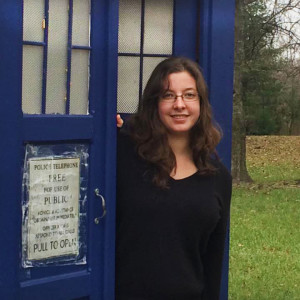 Aja hopes to be an English Teaching Assistant (ETA) in Belgium. Studying French throughout middle and high school revealed her passion for exploring new languages and cultures. As an additional project, Aja plans to engage with food issues that arise in Belgium. She has vast experience working with food security and teaching people how to grow their own healthier food. She will find out by late April if she has been selected by the Belgian National Selection Committee.
Aja hopes to be an English Teaching Assistant (ETA) in Belgium. Studying French throughout middle and high school revealed her passion for exploring new languages and cultures. As an additional project, Aja plans to engage with food issues that arise in Belgium. She has vast experience working with food security and teaching people how to grow their own healthier food. She will find out by late April if she has been selected by the Belgian National Selection Committee.
The Fulbright U.S. Student Program is an international educational exchange sponsored by the U.S. State Department. It is designed to increase mutual understanding between the people of the United States and the people of other countries through cultural engagement.
Since its establishment in 1946 under legislation introduced by the late Senator J. William Fulbright, of Arkansas, the Fulbright Program has provided opportunities for approximately 325,400 people from the United States and from countries around the world to observe each others’ political, economic, educational and cultural institutions, to exchange ideas, and to embark on joint ventures of importance to the general welfare of the world’s inhabitants. The program operates in more than 155 countries worldwide.
Berea students who are about to graduate or young alumni can apply at the following link: https://legacy.berea.edu/cie/fulbright-us-student-program/. The deadline for the application is September 30th every award year.
